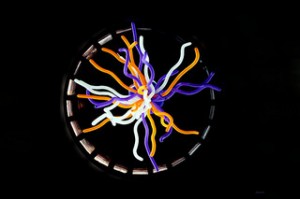
Image courtesy Mateus Záccero
The American Society of Addiction Medicine (ASAM) issued a statement that addictions are the result of biochemical changes in the brain. Whether the addictive behavior involves alcohol, drugs, gambling, or sex—there’s an altered brain chemistry at work.
According to Dr. Michael Miller, past president of ASAM who oversaw the development of this new addiction definition, “the disease is about brains, not drugs. It’s about underlying neurology, not outward actions.”
The disease of addiction affects neurotransmission and the brain’s reward circuitry, leading to “addictive behaviors that supplant healthy behaviors.” Memories of previously rewarding experiences with sex (also food, drugs, and alcohol) trigger cravings and renewal of addictive behaviors.
The ASAM’s new definition of addiction emerges from an intensive four-year process with more than 80 experts actively working on the issue, including top addiction authorities, addiction medicine clinicians, and leading neuroscience researchers from across the country.
“Many chronic diseases require behavioral choices, such as people with heart disease choosing to eat healthier or begin exercising, in addition to medical or surgical interventions,” said Dr. Miller. “So, we have to stop moralizing, blaming, controlling or smirking at the person with the disease of addiction, and start creating opportunities for individuals and families to get help and providing assistance in choosing proper treatment.”
Clich here to read the press release from the ASAM.
Click here to read a more in-depth article from Gary Wilson and Marina Robinson, authors of “The Great Porn Experiment” published in the Evolutionary Review.
